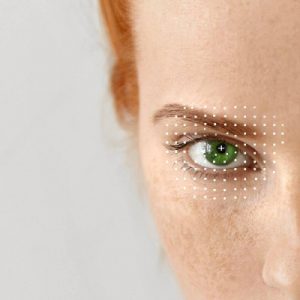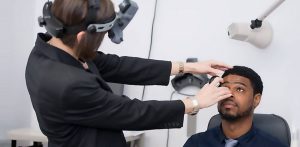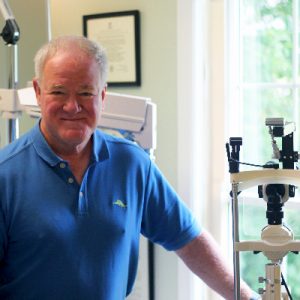When you reach 50 there are your body changes, including your eyes. These tips will help you maintain healthy eyes and clear vision.
Getting older, as well as certain lifestyle choices, might have an impact on your eye health, particularly if you’re in your 50s or older.
Eyes after 50
The lens inside your eye begins to harden as you reach your 50’s, resulting in changes to your eye health and presbyopia (age-related farsightedness). Presbyopia makes it harder for your eyes to focus on close objects and tasks.
Other age-related eye problems for those over 50 include:
- Floaters
- Dry Eyes
- Cataracts
- Glaucoma
- Diabetic Retinopathy
- Age-Related Macular Degeneration
Early diagnosis and treatment can help prevent over half of all visual impairment and blindness.
SEE RELATED: 9 Ways Eye Change with Age
If you’re worried about your vision or eye health, schedule an appointment with an eye doctor near you.
Protect your vision
While it’s natural for your eyes to change as you age, you may need to take a number of steps to protect your vision.
Note: Always consult a medical professional for individual advice on your health.
Here are our top 6 suggestions:
1. Eat well
A well-balanced diet assists in maintaining healthy weight and vision. Obesity and related diseases such as , which is a primary cause of vision loss in adults, can be reduced by eating a nutritious diet.
The following nutrients haven been shown to help prevent vision loss:
- Zinc: Meat, fish, poultry, whole grains, dairy products
- Lutein: Corn, spinach, kale, broccoli, brussels sprouts
- Vitamin A: Dairy products, carrots, kale, spinach, egg yolks
- Vitamin E: Eggs, whole grains, vegetable oils, sunflower seeds
- Vitamin C: Broccoli, green peppers, potatoes, citrus fruits and juices
- Fatty Acids: Coldwater fish, such as rainbow fish, mackerel and salmon; sunflower oil, corn oil
2. Quit smoking
Smoking causes or contributes to a variety of health concerns, including vision loss. Smoking has been linked to age-related macular degeneration, cataracts, and diabetic retinopathy.
3. Stay fit
Exercising for at least 20 minutes per day is beneficial to both your body and your eyes.
The tiny blood vessels in the eyes benefit from improved blood circulation because it removes potentially dangerous particles that have accumulated. Participating in rigorous physical activity isn’t needed; a daily brisk walk will usually suffice.
4. Protect your eyes
Using UV-blocking sunglasses to protect your eyes from UV light can help to slow the progression of cataracts induced by direct sunlight.
Sunglasses protect your retina from injury and reduce the risk of developing skin cancer around your eyes.
Wearing protective eyewear is another way to protect your eyes. Protective eyewear can protect your eyes from wood shavings, metal shards, or a flying ball or hockey puck for those who enjoy playing sports or working with materials like wood or metal.
5. Give your eyes a rest
If you spend a lot of time watching TV or reading articles on your computer screen, you may find that you forget to blink frequently, resulting in fatigue and dry eye symptoms.
The 20-20-20 rule can help you rest your eyes. To relieve eye strain, look at something else for at least 20 seconds at 20 feet away, every 20 minutes.
5. Have regular eye exams
Finally, a full eye exam is critical since it can detect eye conditions that don’t cause symptoms until vision loss has occurred.
Early detection of eye health problems can often prevent irreversible vision loss or even blindness.
The following are some of the eye conditions:
- Cataracts
- Glaucoma
- Diabetic Retinopathy
- Age-Related Macular Degeneration
LEARN MORE: Guide to Eye Health
To find out how to maintain healthy eyes and clear vision, schedule an eye exam with an eye doctor near you.
Vision changes as people get older may be difficult to deal with. Many of these changes, however, can be avoided by following a nutritious diet, leading a healthy lifestyle, and attending frequent eye exams.










